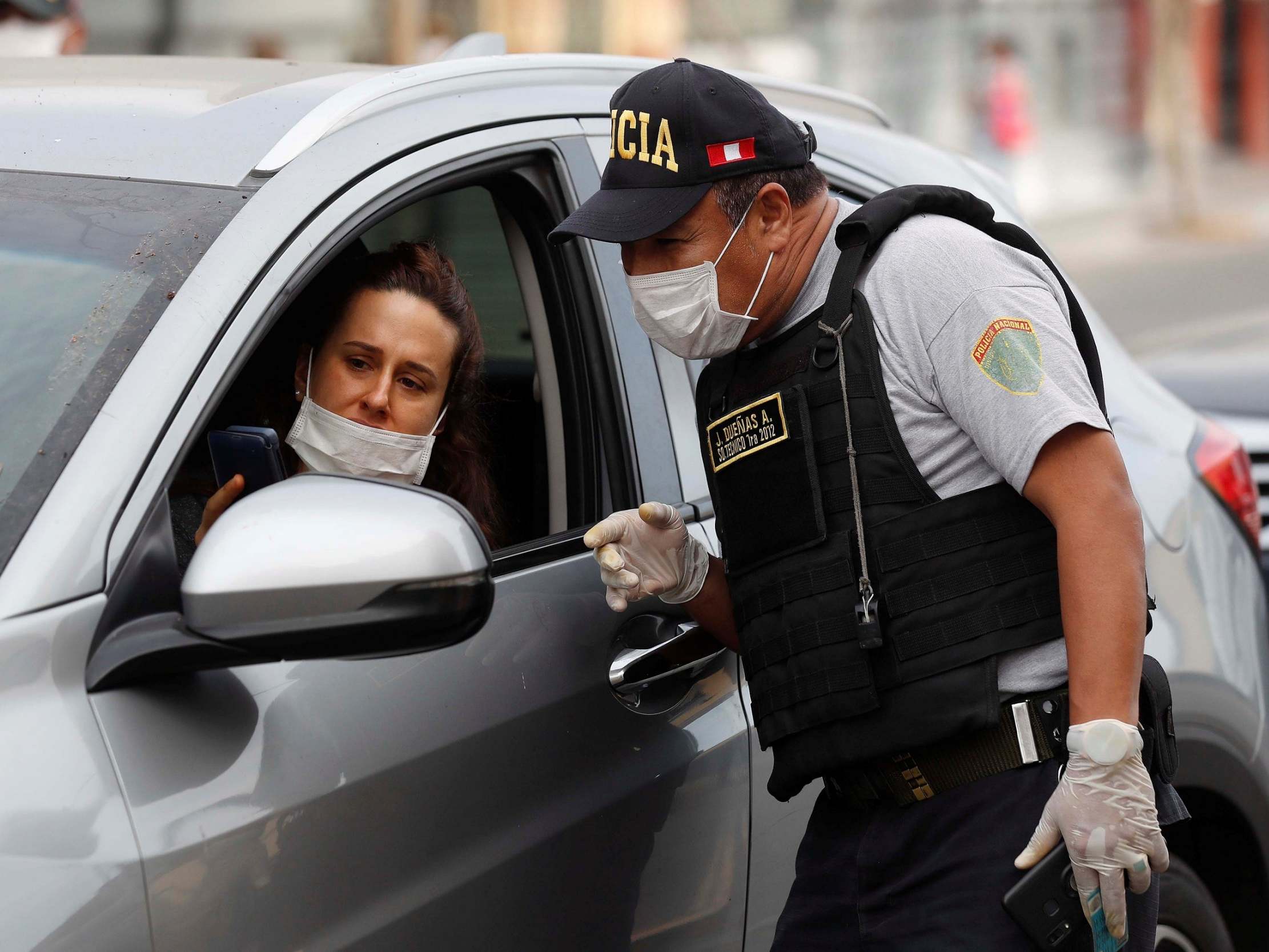Coronavirus: Peru announces social restrictions by gender
Men will be allowed to leave their homes on Monday, Wednesday and Friday, while women can go out on Tuesday, Thursday and Saturday

Your support helps us to tell the story
From reproductive rights to climate change to Big Tech, The Independent is on the ground when the story is developing. Whether it's investigating the financials of Elon Musk's pro-Trump PAC or producing our latest documentary, 'The A Word', which shines a light on the American women fighting for reproductive rights, we know how important it is to parse out the facts from the messaging.
At such a critical moment in US history, we need reporters on the ground. Your donation allows us to keep sending journalists to speak to both sides of the story.
The Independent is trusted by Americans across the entire political spectrum. And unlike many other quality news outlets, we choose not to lock Americans out of our reporting and analysis with paywalls. We believe quality journalism should be available to everyone, paid for by those who can afford it.
Your support makes all the difference.Peru has imposed even stricter quarantine measures that mean men and women will be assigned designated days they can leave their homes based on their gender.
President Martin Vizcarra announced on Thursday that only men are allowed to leave their homes to get essential supplies on Monday, Wednesday and Friday.
Women, on the other hand, are allowed to go out on Tuesday, Thursday and Saturday. On Sunday, no one is allowed to leave home.
According to Reuters, Vizcarra said in a virtual news conference with his cabinet of ministers that the authorities were implementing these gender-based measures to get more people off the streets.
He added that the new restrictions would make it easier for security forces to enforce the quarantine order, instead of a method used in other countries, whereby citizens must carry certain documents.
Men and women in Peru must adhere to their designated days until 12 April, but the measures would not affect people with an emergency or key workers who are authorised to work during the quarantine period.
But Interior Minister Carlos Moran said the restrictions apply to every single person on Sundays, warning: “On Sunday, everyone has to be at home. Banks will not work and supermarkets, markets and shops will be closed.
“There will also be no pharmacies. No one has justification for leaving.”
Peru imposed a nationwide lockdown on 16 March, and the country has recorded 1,414 coronavirus cases with 55 deaths so far.
A day before Peru announced its gender-based restrictions, Panama also said women and men would only be allowed to leave the house on specific days depending on their gender.
Panama’s rules are the opposite of Peru’s – men will be allowed out on Tuesday, Thursday and Saturday, while women can run errands on Monday, Wednesday and Friday. Both genders will only have two hours to complete their shopping for supplies on any day, reported CNN.
Sundays are also off-limits to anyone in Panama. The restrictions will last for at least 15 days, said government officials.
Panama Security Minister Juan Pino said at a virtual press conference: “With an absolute quarantine, men and women will have a schedule to transit. The decision is part of an operational strategy to reduce the spread of Covid-19.”
Under the lockdown, Panamians must adhere to a nightly curfew and cannot leave their homes between 5pm and 5am. The country also banned all domestic and international travel.
Pino also warned that a substantial rise in people needing intensive care treatment could overwhelm the country’s health system.
Panamian President Laurentino 'Nito' Cortizo said in a statement on Twitter that the decision to restrict the public’s movement further was made because of a “great quantity of people circulating outside their homes, despite the obligatory national quarantine”.
There have been 1,317 coronavirus infections reported in Panama, with 32 deaths.
Join our commenting forum
Join thought-provoking conversations, follow other Independent readers and see their replies
Comments